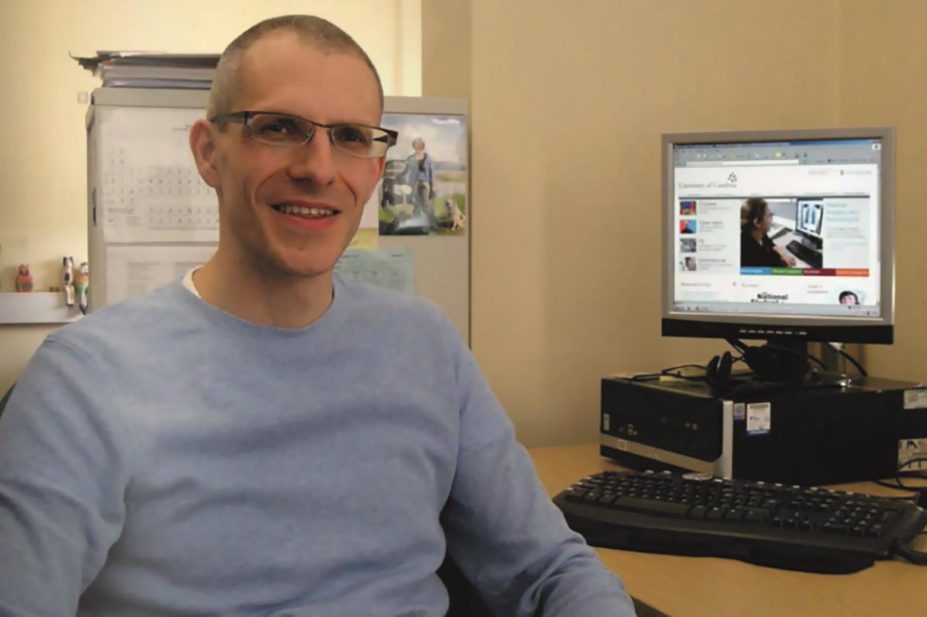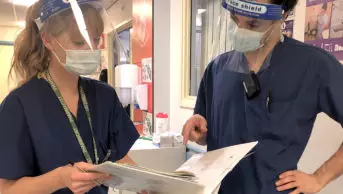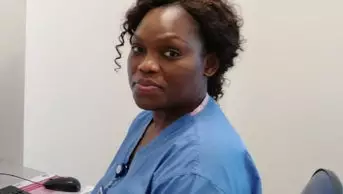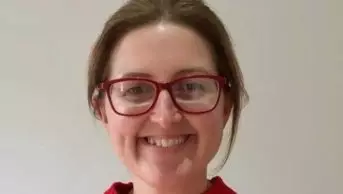
Many pharmacists are now asking themselves what it means to be a pharmacist, especially given the major changes the NHS is undergoing. “Pharmacists now have the potential to go in all different directions. They can be non-medical prescribers, advanced clinical practitioners, or be more involved in public health,” says pharmacist Mark Magas, who works as principal lecturer of lifelong and interprofessional learning at the University of Cumbria in Carlisle.
His own job, he says, is different to that of most pharmacists. “The role allows me to have academic oversight of a number of programmes and also have a good deal of influence on the way we are developing as a university.” These programmes include sexual health, public health, occupational health, non-medical prescribing, paramedic sciences and advanced practice. Magas also leads learning and teaching quality and he is responsible for several modules relating to medicines, pharmacology, prescribing and therapeutics.
Career progression
Magas started his career as a hospital pharmacist, before moving to a small community store and then to pharmacy chain Boots in 2001. “I became a pharmacist resource manager, which involved quite a large amount of teaching and co-ordinating the teaching of pharmacy staff, including healthcare and dispensing assistants, and continuing professional development for pharmacists.”
“The role was a secondment,” Magas explains, “and when it was going to come to an end I decided I would take-up teaching because I’d enjoyed it so much”. He left Boots to work as a locum while studying for a postgraduate certificate in education at St Martin’s College, Lancaster, in 2003. He then taught as a secondary school science teacher for three years. “I did enjoy working with young people. It made me gain skills in being able to explain difficult scientific concepts effectively and in interesting and imaginative ways.”
In 2006, Magas became a lecturer in pharmacology at the University of Cumbria (known then as St Martin’s College). “I expanded the opportunities to have pharmacological and medicines input into a number of other courses, for example, midwifery and occupational therapy. As time progressed I became a senior lecturer and a principal lecturer.”
He teaches a diverse range of students, including midwives and army paramedics, giving him the opportunity to work on diverse subjects at both undergraduate and postgraduate level. “Of particular note is our involvement with training medical technicians and paramedics for the defence medical services, including those who are intending to ‘resettle’ to work as civilian paramedics,” he says.
Students of different disciplines are taught both separately and together, Magas explains. “For example, non-medical prescribing works very well when we teach pharmacists, nurses and registrants of the Health and Care Professions Council together,” he adds.
He is fairly new to this position as principal lecturer, so his immediate goal is to settle into the role. “I want to support my colleagues and help to make the department of lifelong and interprofessional learning an increasing success,” he said. “Beyond that I would like to attain my PhD, and also test out whether I’d suit a more strategic role within academia.”
Now is an exciting time for the NHS, says Magas, and for all healthcare professionals working within it. The ‘Closer to Home’ agenda, which is a campaign to promote the treating of patients in the community rather than at hospital if possible, and the additional supporting roles, such as non-medical prescribers and advanced practitioners, are emerging as highly valued within the NHS, says Magas. “It is exciting to be part of training the NHS staff that will take forward the new agendas in the NHS.”
Interview by
Jeff Mills
Mark Magas
Career summary
Jan 2014 – present: principal lecturer in lifelong and interprofessional learning, University of Cumbria
July 2006 – present: senior lecturer in pharmacology, University of Cumbria
Jan 2006 – July 2006: lecturer in pharmacology, St Martin’s College (now University of Cumbria)
Sept 2004 – January 2006: science teacher, Trinity School Carlisle
Sept 2003 – July 2004: postgraduate certificate in education studies , St Martin’s College, Lancaster
June 2002 – July 2003: Boots pharmacist resource manager
May 2001– June 2002: Boots consultant pharmacist
March 1995 – May 2001: pharmacist and manager, Bowman’s Chemist, Carlisle
July 1993 – March 1995: Grade B pharmacist, Cumbria NHS Trust
Qualifications
2012: Senior Teaching Fellow, Higher Education Academy
2011: Senior Teaching Fellow, University of Cumbria
2010: University of Cumbria Vice Chancellor’s Teaching Award
2010: MSc (Science) Molecules in Medicine and Science Learning
You may also be interested in

‘Pharmacy plays a vital role in maintaining patient flow and efficiency of discharges’ – a day in the life of an orthopaedic pharmacist

‘Nothing compares to it’ — a day in the life of a child and adolescent mental health pharmacist
